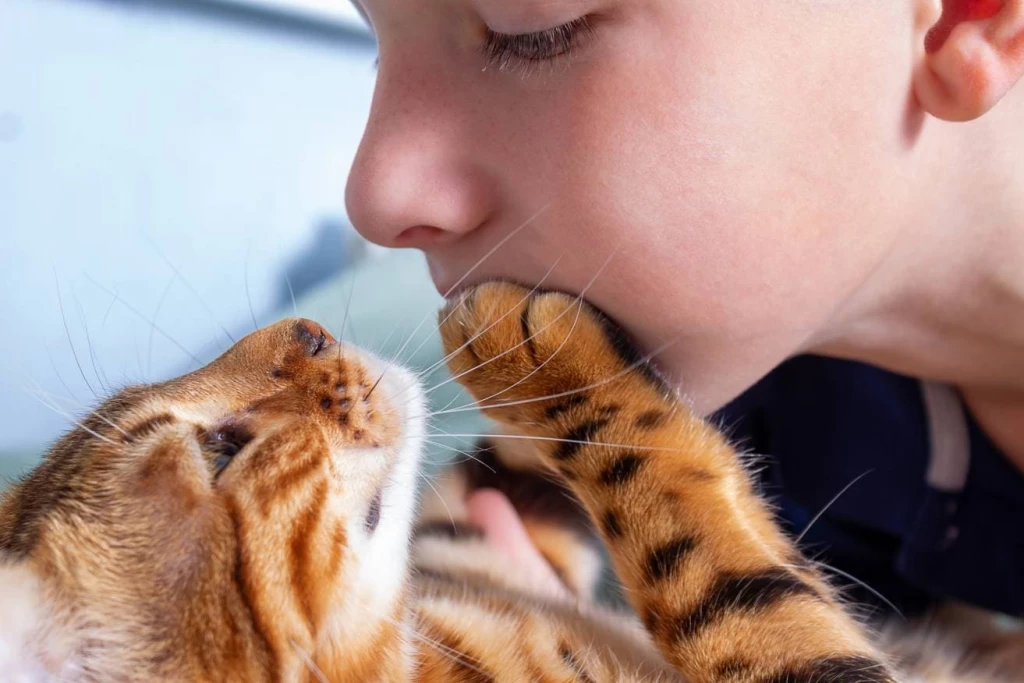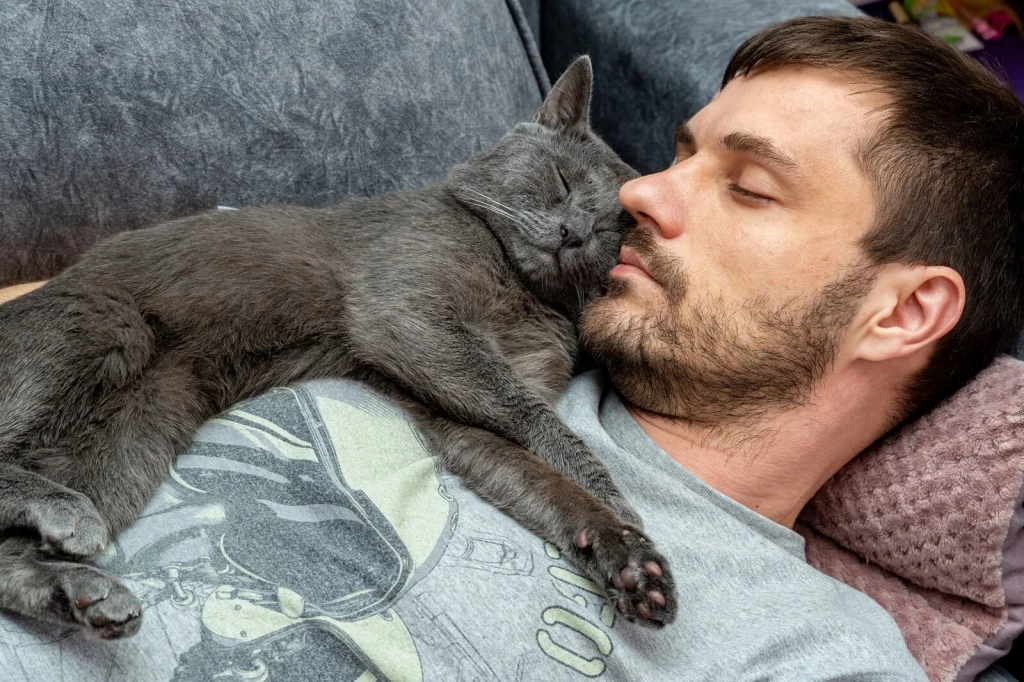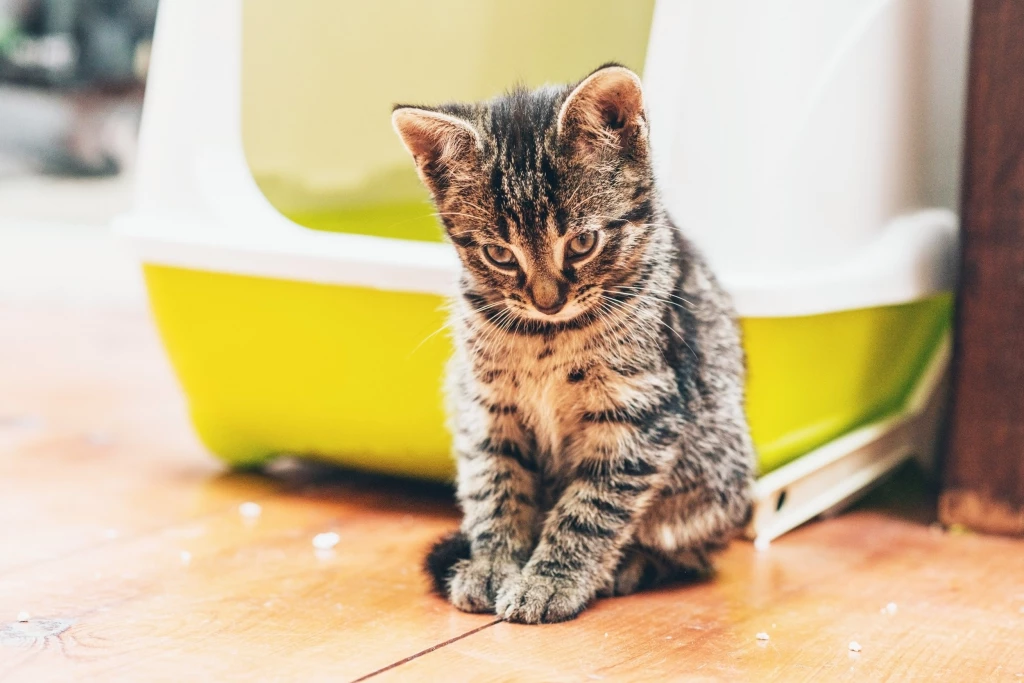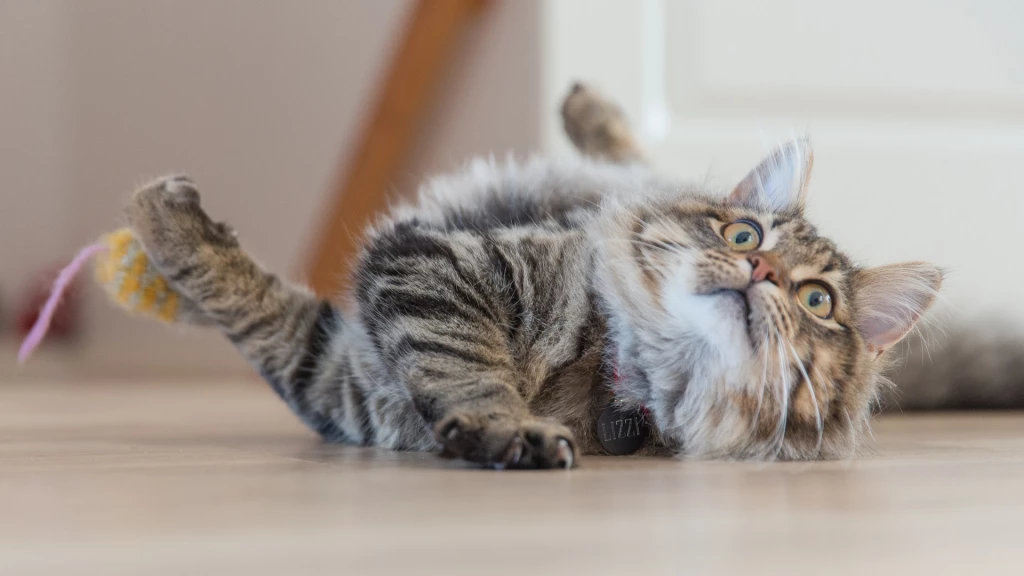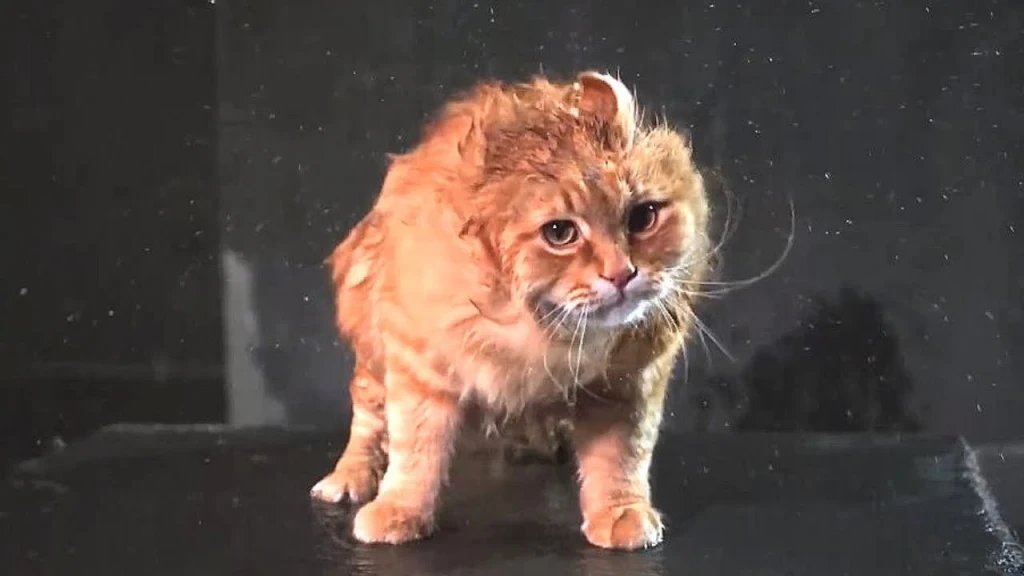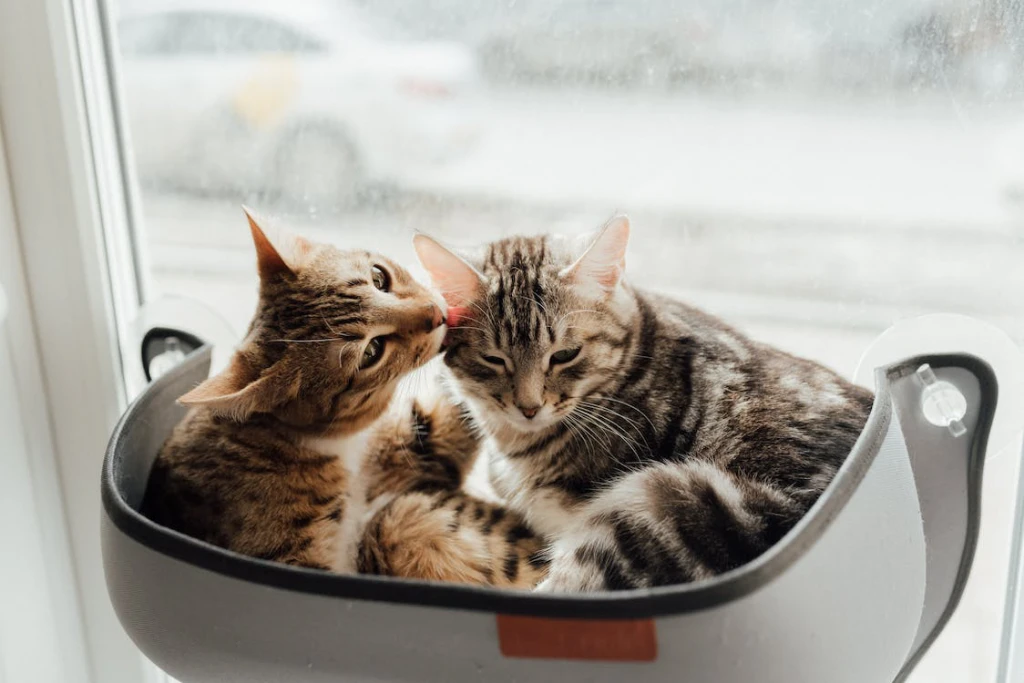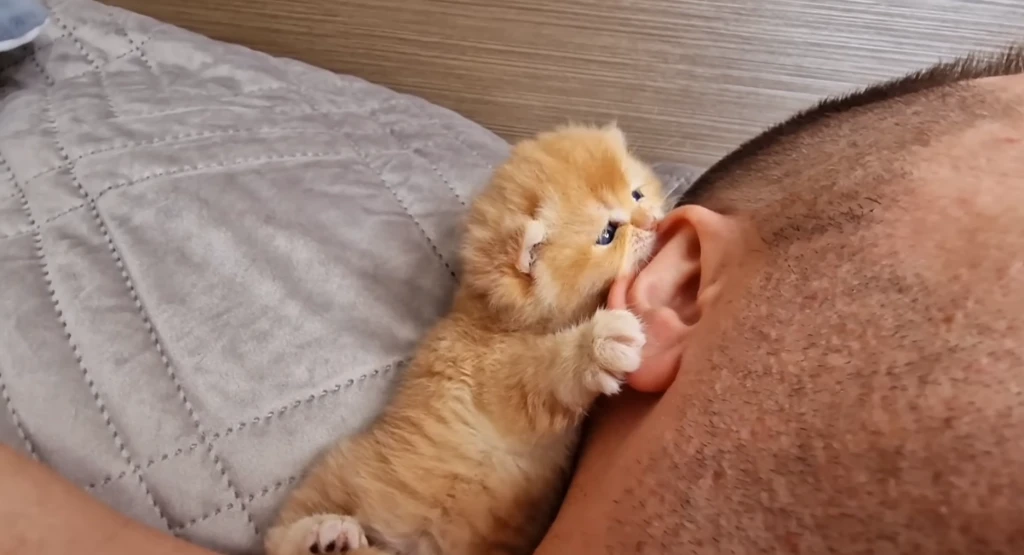Have you ever wondered why your cat puts his paw on your mouth? If you are a cat owner, you may have experienced this behavior from your furry friend. It may seem cute, funny, or annoying, depending on the situation. But what does it really mean? Why does your cat put his paw on your mouth?
Cats are very expressive animals that use their body language and vocalizations to communicate with us and other cats. They have different ways of showing their emotions, needs, and preferences. Sometimes, they may use their paws to convey a message or to interact with us.
In this blog post, we will explore some of the possible reasons why your cat puts his paw on your mouth. We will also give you some tips on how to respond to this behavior and what to avoid doing. By understanding your cat’s behavior better, you can improve your relationship with him and enjoy his company more.
Reasons Cat Put His Paw On Your Mouth?
If you have ever experienced your cat putting his paw on your mouth, you may have wondered what he is trying to tell you. Is he being affectionate, playful, dominant or just curious? The truth is, there is no definitive answer to this question, as different cats may have different reasons for this behavior. However, based on some common cat behaviors and body language cues, we can make some educated guesses and explore some possible explanations.
One possible reason why your cat puts his paw on your mouth is that he is trying to spread his scent on you. Cats have sweat glands on their paws that secrete pheromones, which are chemical signals that convey information to other cats. By putting his paw on your mouth, your cat may be marking you as his own and showing his attachment to you. This would be more likely if your cat also rubs his head or body against you when he does it.
Another possible reason is that he is trying to wake you up. Cats are crepuscular animals, which means they are most active during dawn and dusk. This may not match your sleeping schedule, especially if you like to sleep in or stay up late. Your cat may paw at your mouth when he is hungry, bored or wants your attention. He may also do this if he hears or sees something interesting outside and wants you to join him.
A third possible reason is that he is showing trust and comfort. Cats are vulnerable when they sleep, so they usually choose a safe and cozy spot to nap. If your cat lays his paw on your mouth when he is sleeping or relaxing next to you, it may be a sign that he feels secure and protected by you. He may also be seeking warmth and contact from you.
A fourth possible reason is that he is trying to stop you from kissing or holding him. Cats are not very fond of being kissed or hugged by humans, as they may perceive it as a threat or an invasion of their personal space. Your cat may paw at your mouth when you try to kiss him or hold him in a certain way to tell you that he doesn’t like it or he wants you to stop. He may also do this if he feels uncomfortable or stressed by something in his environment.
A fifth possible reason is that he is simply finding a comfy spot to rest his paws. Cats are curious and playful animals, and they may explore different objects and surfaces with their paws. Your mouth may be one of them, especially if it is warm and soft. Your cat may not have any deeper meaning behind this behavior, and he may just be enjoying the sensation of touching your mouth.
As you can see, there are many possible reasons, and they may vary depending on the context and the personality of your cat. The best way to understand your cat’s behavior is to observe him closely and pay attention to his body language and vocalizations. By doing so, you can learn more about his preferences, moods and needs, and build a stronger bond with him.
How To Respond To My Cat Putting His Paw On My Mouth?
Now that you know some of the possible reasons why your cat paws at your mouth or other parts of your body, you may wonder how you should react to this behavior. Depending on the context and the intention of your cat, there are different ways you can respond to your cat’s pawing. Here are some tips and suggestions:
- If your cat paws at you for attention or affection, you should give them some positive reinforcement. You can pet them, scratch them behind the ears or on the chin, talk to them in a soothing voice, or give them a treat. You can also reciprocate their gesture by gently touching their paw or rubbing your cheek against it. This will show your cat that you appreciate their love and that you love them back.
- If your cat paws at you to wake you up or to get something from you, you should try to understand their needs and meet them if possible. You can feed them, play with them, or provide them with some enrichment activities. You can also set a routine for your cat so they know when to expect your attention and when to leave you alone. However, if your cat is being too persistent or demanding, you should ignore them or gently push them away. You don’t want to reward their bad behavior or teach them that pawing is an effective way to get what they want.
- If your cat paws at you to stop you from kissing or holding them, you should respect their boundaries and let them go. You should not force your cat to do something they don’t like or feel comfortable with. You should also pay attention to their body language and vocalizations. If they are hissing, growling, biting, scratching, or showing other signs of aggression or fear, you should back off immediately and give them some space. You should also avoid putting your face too close to theirs, as this may be seen as a threat by some cats.
- If your cat paws at you because they are showing trust and comfort, you should feel honored and happy. You should cuddle with them and make them feel safe and secure. You can also cover them with a blanket or a pillow to keep them warm and cozy. You should not disturb them or move them unless necessary. You should also avoid touching their belly or their feet, as these are sensitive areas that some cats don’t like being touched.
- If your cat paws at you because they are finding a comfy spot, you should let them be and enjoy their company. You can also provide them with a comfortable bed or pillow where they can rest their paws and sleep peacefully. You can also place it near your bed so they can still be close to you without bothering you.
As you can see, there are different ways you can respond to your cat’s pawing depending on the situation and the personality of your cat. The key is to observe your cat closely and try to understand what they are trying to communicate with their paws. By doing so, you can improve your relationship with your cat and make them happy and healthy.
Factors to Consider
When trying to figure out why your cat is putting its paw on your mouth, there are several factors you should consider. These include:
- Your cat's personality: Every cat is different and has its own unique personality. Some cats are very affectionate and enjoy snuggling with their owners, while others may be more independent and prefer to keep their distance.
- Your cat's age: Kittens and young cats are generally more playful and active, while older cats may be more relaxed and calm. This can affect how your cat interacts with you and whether it seeks attention or personal space.
- Your cat's health: If your cat is experiencing health issues or pain, it may be more irritable or less likely to seek attention. Conversely, if your cat is feeling healthy and happy, it may be more likely to seek affection and attention.
- Your cat's environment: Your cat's environment can also affect its behavior. If your cat is in a stressful or unfamiliar environment, it may be more likely to seek comfort and affection from you.
- Your cat's past experiences: Your cat's past experiences with people and other animals can also affect its behavior. If your cat was mistreated or neglected in the past, it may be more wary or less likely to seek attention.
Tips for Dealing with Your Cat's Paw-on-Mouth Behavior
If your cat is putting its paw on your mouth, there are several things you can do to address this behavior:
- Hold your cat differently: If your cat is putting its paw on your mouth while you are holding it, try adjusting your hold. You can hold your cat against your chest or shoulder instead of holding it up to your face, which may make it less likely to place its paw on your mouth.
- Do not take your face too close to it: If your cat is placing its paw on your mouth when you are sitting or lying down, try to avoid putting your face too close to your cat. This can help prevent your cat from feeling the need to reach out and touch your face.
- Give your cat toys: Cats love to play, and providing your cat with toys can help redirect its attention away from your face. You can give your cat a variety of toys, such as balls, feathers, or toy mice, to keep it entertained.
- Use positive reinforcement: When your cat is behaving in a way that you like, such as sitting calmly in your lap without placing its paw on your mouth, be sure to reward it with praise or treats. This can help reinforce positive behavior and encourage your cat to continue behaving in this way.
- Be patient and understanding: Remember that cats are independent animals with their own personalities and preferences. It may take time for your cat to adjust its behavior, and it may never completely stop placing its paw on your mouth. Be patient and understanding, and continue to respond to your cat in a positive and loving way.
By using these tips, you can help address your cat's paw-on-mouth behavior in a way that is respectful and appropriate. Remember, every cat is different, so it's important to observe your cat's behavior and respond to it in a way that is tailored to its individual needs and preferences.
Should You Stop Your Cat from Putting Its Paw On Your Mouth?
Whether or not you should stop your cat from putting its paw on your mouth depends on several factors.
If your cat is doing it out of affection, trust, or to seek attention, then there's likely no reason to stop it. In fact, it can be a sign that your cat trusts and loves you, and wants to be close to you.
However, if your cat is using its paw to signal that it wants you to stop doing something, such as talking or petting it, then it may be appropriate to redirect its behavior. In this case, you can try using positive reinforcement to reward your cat for good behavior, or redirect its attention with toys or treats.
Additionally, if your cat is using its paw in a way that is aggressive or painful, such as scratching or biting, then it's important to address the behavior and take steps to prevent it from happening again.
Ultimately, the decision to stop your cat from putting its paw on your mouth should be based on the specific behavior and context in which it is occurring. If you're unsure whether or not to address the behavior, consult with your veterinarian or a professional animal behaviorist for guidance.
Conclusion
As you can see, there are many possible reasons why cats put their paws on their owners' mouths. Some of them are related to their natural instincts and behaviors, while others are related to their personality and emotions. Some of them are positive and affectionate, while others are negative and defensive. Whatever the reason, your cat is trying to communicate something to you, and it is up to you to understand and respect his wishes.
The next time your cat puts his paw on your mouth, don't get angry or frustrated. Instead, try to figure out what he is telling you and how you can make him happy and comfortable. Remember that your cat loves you and trusts you, and he wants to share his life with you. By paying attention to his signals and responding appropriately, you can make your relationship with your cat even stronger and more enjoyable.
